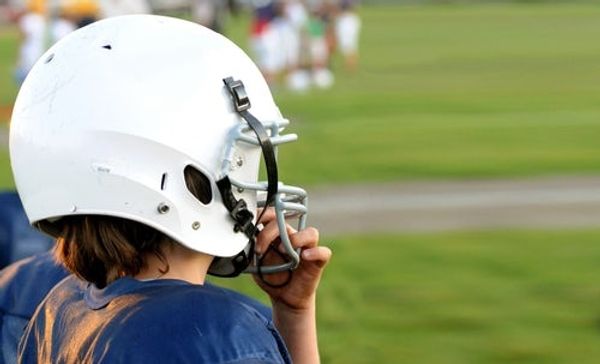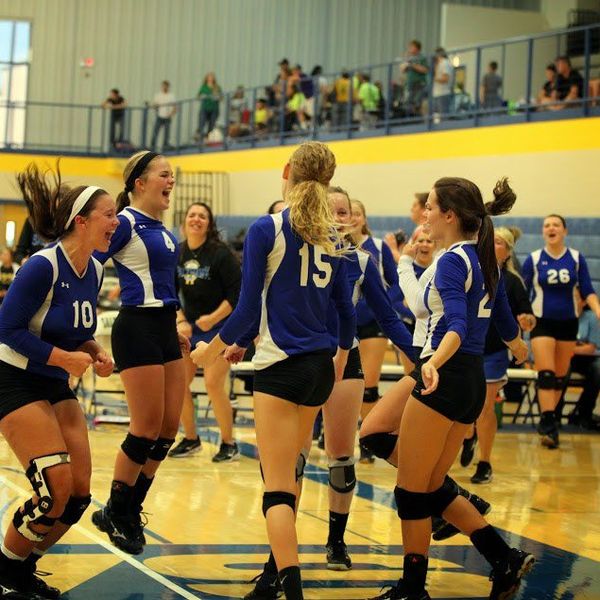For many high school students, the last bell signifying the last class does not mean their school day is over. While some scholars rush home after an exhausting day of note taking and tests, others head to the field, track, court or pool for a practice, competition, match or meet.
It is estimated that today over 7.8 million adolescents participate in school-sponsored sports, according to the National Federation of the State High School Association. Student athletes advance their athletic proficiencies, build strong bodies and forge friendships. But research shows the benefits run much deeper; there is a myriad of measurable academic benefits involved with being a student-athlete.
A clear benefit to playing a sport that most people are aware of is being more “in shape” and healthy. Beyond that, physical activity also helps increase blood flow to the brain. By being active while competing or practicing a sport, one is helping their body create quicker connections between nerves. This leads to an improvement in skills such as the student’s memory, concentration, creativity and even problem-solving skills. Being active regularly can lead to improvements in many subjects in school.
When one exercises, the hippocampus, the part of the human brain that focuses on learning and memory, is as active as themselves. According to another study by Justin Rhodes, a psychology professor at the University of Illinois at Urbana-Champaign, when the neurons in this area of the brain are sped up, cognitive function improves.
A similar piece written by Heidi Godman from Harvard University’s health publication found that especially “aerobic exercise, the kind that gets your heart and your sweat glands pumping, appears to boost the size of the hippocampus.”
Godman found that sports and exercise also improve memory in both indirect and direct ways. “The benefits of exercise come directly from its ability to reduce insulin resistance, reduce inflammation, and stimulate the release of growth factors—chemicals in the brain that affect the health of brain cells, the growth of new blood vessels in the brain, and even the abundance and survival of new brain cells.” Indirectly, Godman wrote that exercise across the board increases mood and sleep quality, which reduces stress and anxiety, two large factors that take a toll on academic performances of high school students today. This is the reason some people exercise when they need a clear mind or become too stressed out to think openly.
Another positive effect of athletic participation in high school students is a lower chance of dropping out of school completely.
Many high school sports, especially Varsity, are competitive and an extensive commitment. This may entail practice every day after school, as well as lengthy weekend commitments to the team. Many states have laws in place that prevent student-athletes from skipping school by having mandatory attendance throughout the day in order to participate in an interscholastic athletic activity. This prevents dedicated athletes, who wouldn’t want to give up their sport due to missing class, from ultimately dropping out altogether. Collectively, many student-athletes end up powering through the day in anticipation for their sports practice or competition.
Getting involved with a school sport can be beneficial for not only a “neuro-typical” student but also a student with special needs. There are physical actions that can improve a student’s performance and improvement in the classroom, including areas involving reading.
Researchers François Trudeau and Roy J. Shephard studied four students with emotional and behavioral disabilities. After their 10-week trial, they found “Back in class, there was an increase (13.8%, or a little more than 23 minutes) in the amount of time spent focused on the tasks they were supposed to be performing.”
During a similar study of students with other learning disabilities, the student-athletes “improved classroom behavior and the perception of academic competence was increased," according to Tredeau and Shephard.
Student-athletes with attention deficit hyperactivity disorder were studied as well, and research showed after 10 weeks they were exhibiting fewer impulsive actions and behavioral problems often associated with ADHD in an academic setting. While there are no current cures for ADHD, learning, emotional and behavioral disabilities, sports have been proven to lessen some symptoms and increase intellectual abilities.
It has been proven that there are many benefits to being a student-athlete, besides a Varsity letter, “better” body, a more diverse social life and better health. Sports have also been proven to develop skills that can be expressed once the uniform is taken off and the athlete is back to the books.





















